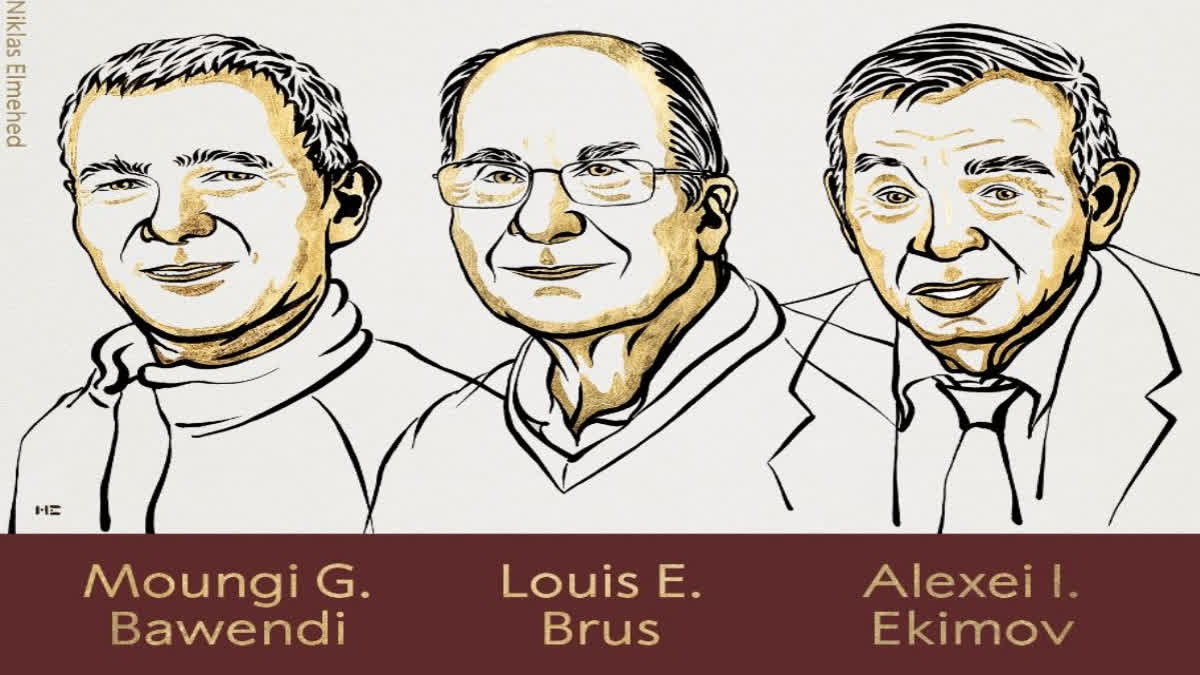Stockholm:The 2023 Nobel Prize in Chemistry has been awarded to Moungi G. Bawendi, Louis E. Brus and Alexei I. Ekimov “for the discovery and synthesis of quantum dots.”
The Royal Swedish Academy of Sciences announced the award on Wednesday in a press conference in Stockholm. In a press statement, the Academy said the 2023 Nobel Prize in Chemistry rewards the discovery and development of quantum dots, nanoparticles so tiny that their size determines their properties.
"These particles have unique properties and now spread their light from television screens and LED lamps. They catalyse chemical reactions and their clear light can illuminate tumour tissue for a surgeon. Researchers have primarily utilised quantum dots to create coloured light. They believe that in the future quantum dots can contribute to flexible electronics, miniscule sensors, slimmer solar cells and perhaps encrypted quantum communication," the statement read.
The Nobel Laureates in Chemistry 2023 have succeeded in producing particles so small that their properties are determined by quantum phenomena. The particles, which are called quantum dots, are now of great importance in nanotechnology.
“Quantum dots have many fascinating and unusual properties. Importantly, they have different colours depending on their size,” says Johan Aqvist, Chair of the Nobel Committee for Chemistry.
Physicists had long known that in theory size-dependent quantum effects could arise in nanoparticles, but at that time it was almost impossible to sculpt in nanodimensions. Therefore, few people believed that this knowledge would be put to practical use.
However, in the early 1980s, Alexei Ekimov succeeded in creating size-dependent quantum effects in coloured glass. The colour came from nanoparticles of copper chloride and Ekimov demonstrated that the particle size affected the colour of the glass via quantum effects.
A few years later, Louis Brus was the first scientist in the world to prove size-dependent quantum effects in particles floating freely in a fluid.
